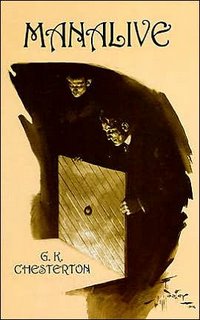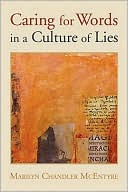stars in the universe

2 Colossians 3: 13, 16, 18
We are not like Moses, who would put a veil over his face to keep the Israelites from gazing at it while the radiance was fading away...But whenever anyone turns to the Lord, the veil is taken away...And we, who with unveiled faces all reflect the Lord's glory, are being transformed into his likeness with ever-increasing glory, which comes from the Lord, who is the Spirit.
meditations on manalive
In Chesterton's sometimes shocking--but altogether humorous and enthralling--novel, Manalive, we meet a man called Innocent Smith. A man who enters the pages like the great "wind that [sprang] high in the west, like a wave of unreasonable happiness." He thrusts himself upon the lives of several boarders in a boarding house and no one is the same again. "In a million holes and corners it refreshed a man like a flagon, and astonished him like a blow. In the inmost chambers of intricate and embowered houses it woke like a domestic explosion."
Innocent Smith is that explosion. He shatters the laws of convention, but never breaks the Law. Instead, he turns everything on its head. He sees the world with awe and innocence. He travels round the world, just so he might come home again. After all, is not "home" really the destination of all our travels? Do we not always wish that we might come home again?
Why can't we all be Innocent Smiths in the world? Why can't we all embrace that vibrant Chestertonian (which is actually a quite Christian) view of the world? And what is this view but to appreciate the life that God has given us. Innocent Smith has a strange hobby of threatening pessimistic professors with guns. When one professor says that men would be better off dead, Innocent quickly replies that he will help by shooting him. Of course, he never does: it is merely a ploy to show the professor how precious life truly is. And eventually he gets the professor to renounce all his previous ideas and see the world as Smith sees it.
Sometimes people can be too grave, too solemn, too serious. This is exactly what C. S. Lewis condemned in An Experiment in Criticism. He speaks of how we have raised up "a breed of young men as solemn as the brutes." He goes on to point out how such a class can't possibly enjoy literature or know the meaning and intent of what they read; I wonder how they can even enjoy life or know what their meaning and purpose in life is.
For how can we be solemn and bleak, when we are praising God? Death has been conquered. We are sharers in everlasting life.
Philippians 2: 14-16
Do everything without complaining or arguing, so that you may become blameless and pure, children of God without fault in a crooked and depraved generation, in which you shine like stars in the universe as you hold out the word of life.
How can we be shining stars when we appear like everyone else? But when we smile, when we are kind, when we love life, when we love God and praise Him for all He has done, when we "glorify God and enjoy him forever," then we shall be stars. We will no longer blend into the dark of night: we will stand out, shimmering in a light that cannot be hidden.
In many ways, Manalive cannot be taken entirely seriously. We are not to threaten professors with guns, break into our own houses, journey round the world, but we are to see life as Smith sees it.
"But, manalive!" began Inglewood in exasperation.
"That's right! That's right!" came with a roar out of the rocking tree; "that's my real name." And he broke a branch, and one or two autumn leaves fluttered away across the moon.
We are manalive as well. No longer are we dead. Sometimes we forget that. We forget all that God has done for us and all that He is. Let us pray that this does not happen often, because it is too great a thing to be forgotten. It is our very life.
Ephesians 2: 4-5
But because of his great love for us, God, who is rich in mercy, made us alive with Christ even when we were dead in transgressions--it is by grace you have been saved.
The American Chesterton Society has an essay on their site about Manalive. It concludes:
So, is Innocent Smith really G.K. Chesterton? Well, let me say this: this novel is Chesterton’s most practical and least theoretical book. This is the book on how to live Chesterton. I have found that people either love this book or are neutral about it. There is no hating it. And if you are neutral about it, well, you need to go have a picnic on the roof.
Labels: book reviews, bookish musings
Posted by Nicole Bianchi at 10:13 PM
![]()


 This is life seen through the eyes of a writer. A blog that critically examines literature, music, and film. NB, initials which coincidently coinside with the Latin words "nota bene" (mark well), belong to the blog poster, a bibliophile who likes to haunt libraries and book stores, talk about all things bookish, and ramble at any length on things regarding literature. Many of the articles posted here were written as essays for high school and college.
This is life seen through the eyes of a writer. A blog that critically examines literature, music, and film. NB, initials which coincidently coinside with the Latin words "nota bene" (mark well), belong to the blog poster, a bibliophile who likes to haunt libraries and book stores, talk about all things bookish, and ramble at any length on things regarding literature. Many of the articles posted here were written as essays for high school and college.






0 Comments:
Post a Comment
<< Home